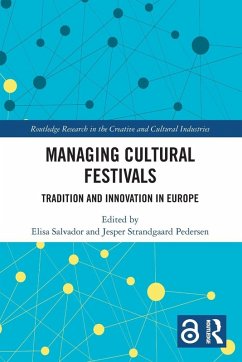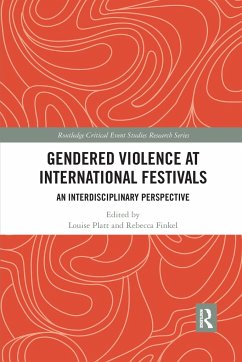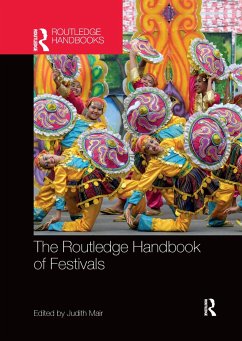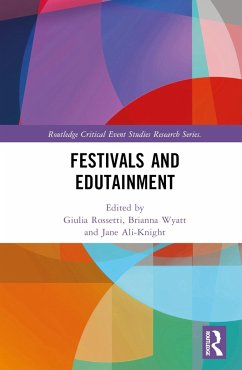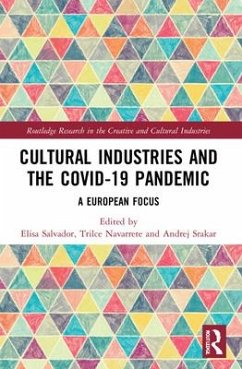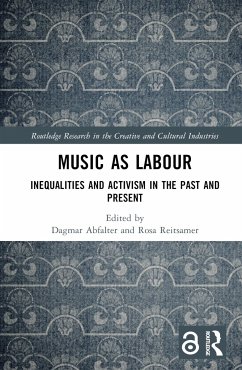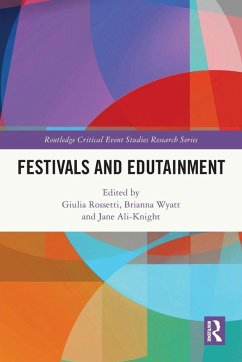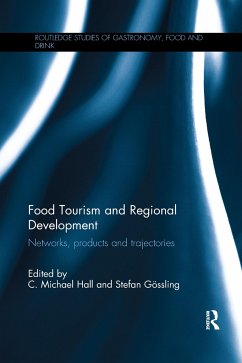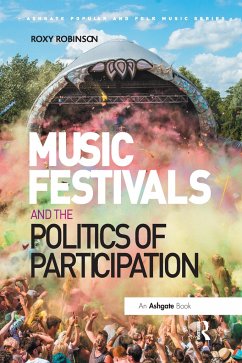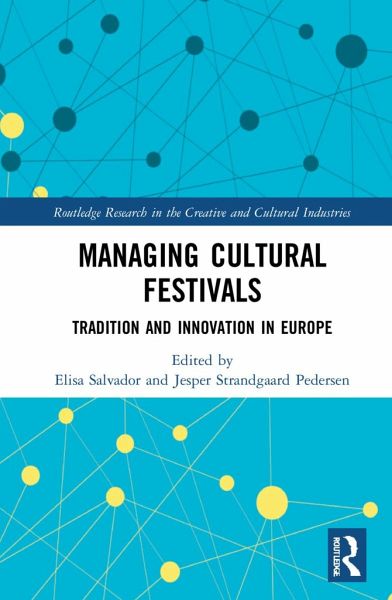
Managing Cultural Festivals
Tradition and Innovation in Europe
Herausgegeben: Salvador, Elisa; Strandgaard Pedersen, Jesper
Versandkostenfrei!
Versandfertig in 6-10 Tagen
154,99 €
inkl. MwSt.
Weitere Ausgaben:

PAYBACK Punkte
77 °P sammeln!
This book aims at renewing the attention on a niche field, Cultural Festivals, so important for valorizing cultural traditions and local heritage visibility as well as social well-being. Following the disruptive consequences of the COVID-19 pandemic, this fragile sector deserves more attention from public authorities and stakeholders at national and European levels with a suitable and dedicated plan of recovery and valorization.This book provides a comparative analysis of Cultural Festivals in Europe, taking insights from an international range of high-level scholarly contributors. Individual ...
This book aims at renewing the attention on a niche field, Cultural Festivals, so important for valorizing cultural traditions and local heritage visibility as well as social well-being. Following the disruptive consequences of the COVID-19 pandemic, this fragile sector deserves more attention from public authorities and stakeholders at national and European levels with a suitable and dedicated plan of recovery and valorization.
This book provides a comparative analysis of Cultural Festivals in Europe, taking insights from an international range of high-level scholarly contributors. Individual chapters highlight and analyse challenges around the organisation, management and economics of Cultural Festivals. As a whole, the book provides a comprehensive overview of scholarly research in this area, setting the scene for the future research agenda. Matters related to educational programs and new audience development, as well as challenges related to digitalization, are also included.
The book employs a tradition versus innovation lens to help readers account for the consequences of the digital revolution, new audience development and an educational agenda. The result is a book which will be valuable reading for researchers, academics and students in the fields of event and cultural management and beyond.
Chapters 4 and 9 of this book are available for free in PDF format as Open Access from the individual product page at www.routledge.com. They have been made available under a Creative Commons Attribution-Non Commercial-No Derivatives 4.0 license.
This book provides a comparative analysis of Cultural Festivals in Europe, taking insights from an international range of high-level scholarly contributors. Individual chapters highlight and analyse challenges around the organisation, management and economics of Cultural Festivals. As a whole, the book provides a comprehensive overview of scholarly research in this area, setting the scene for the future research agenda. Matters related to educational programs and new audience development, as well as challenges related to digitalization, are also included.
The book employs a tradition versus innovation lens to help readers account for the consequences of the digital revolution, new audience development and an educational agenda. The result is a book which will be valuable reading for researchers, academics and students in the fields of event and cultural management and beyond.
Chapters 4 and 9 of this book are available for free in PDF format as Open Access from the individual product page at www.routledge.com. They have been made available under a Creative Commons Attribution-Non Commercial-No Derivatives 4.0 license.




